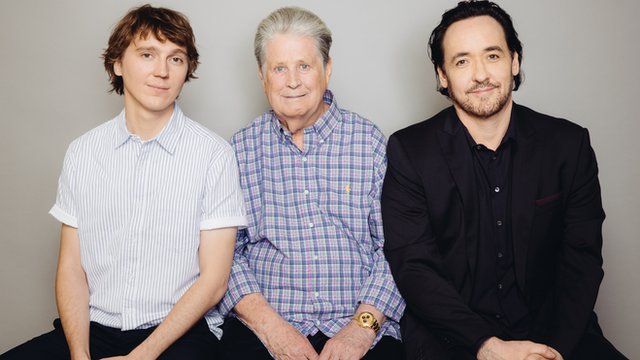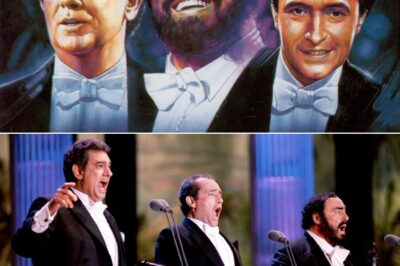Brian Wilson Unmasked: The Beach Boys’ Secret Torment, a Psych Ward Escape, and the Forbidden Love That Saved Him – Inside the Savage Betrayals, Drug-Fueled Genius, and Miraculous Comeback of Music’s Most Tragic Hero (What They Never Told You About ‘Love & Mercy’)

Brian Wilson, the legendary co-founder of the Beach Boys, is one of the most complex and transformative figures in music history. His 2014 biographical film, Love & Mercy, aptly titled after his 1988 solo song, is more than just a movie — it is a haunting and compassionate exploration of creativity, mental illness, exploitation, and the enduring power of love. It invites audiences into the life of a man whose brilliant mind produced some of the most iconic music of the 20th century, even as that same mind threatened to consume him.
The Genius Behind the Beach Boys
In the 1960s, Brian Wilson stood at the forefront of the American music scene. As the principal songwriter and creative force behind the Beach Boys, Wilson didn’t just churn out catchy surf-rock hits; he redefined what pop music could be. Albums like Pet Sounds (1966) showcased his genius for intricate harmonies, innovative arrangements, and deeply emotional songwriting. Songs like “God Only Knows,” “Wouldn’t It Be Nice,” and “Caroline, No” were revolutionary for their time and remain timeless masterpieces.
Wilson’s ambition was boundless. While his bandmates toured, he stayed behind in the studio, determined to push the boundaries of sound. This drive culminated in the ambitious but ultimately abandoned Smile project — a record that would take decades to see the light of day, largely due to Wilson’s deteriorating mental health.
Descent into Darkness

Love & Mercy, directed by Bill Pohlad, uniquely portrays Wilson’s life through two timelines: the 1960s Brian (played by Paul Dano), full of vision and innovation but increasingly plagued by anxiety and auditory hallucinations; and the 1980s Brian (played by John Cusack), a man broken, heavily medicated, and under the manipulative control of therapist Dr. Eugene Landy (Paul Giamatti).
The film doesn’t shy away from the pain of Wilson’s inner world. Viewers are drawn into his paranoia, the cruel voices in his head, and the weight of expectations he couldn’t bear. It’s a harrowing depiction of schizophrenia and depression — conditions that Wilson was misdiagnosed and overmedicated for under Landy’s care. By the 1980s, Brian was a recluse, cut off from friends, family, and the music that once defined him.
The Role of Love and Rescue

The “Mercy” of the film’s title finds embodiment in Melinda Ledbetter (Elizabeth Banks), a car saleswoman who would become Wilson’s wife and ultimate savior. Her character provides not just romance, but hope and strength. Where Landy sees a patient to exploit, Melinda sees a human being worth fighting for.
Her journey to free Brian from Landy’s control becomes one of the most emotionally charged threads in the film. It’s not a sweeping love story with melodramatic gestures — it’s quiet, persistent, and grounded in the belief that love, when rooted in truth and courage, can heal even the most fractured soul.
In real life, Melinda Ledbetter did succeed in liberating Wilson from Landy’s toxic guardianship. They married in 1995, and she has since become a vital part of Wilson’s personal and professional life.
A Tale of Two Brians
The dual-timeline approach in Love & Mercy is a stroke of narrative brilliance. Paul Dano’s portrayal captures the innocence, ambition, and growing torment of young Brian. His scenes in the studio are mesmerizing, especially as he orchestrates Pet Sounds with the famed Wrecking Crew musicians. Dano doesn’t just imitate; he channels Wilson’s spirit.
John Cusack’s older Brian, though physically and emotionally diminished, conveys a quiet dignity. At first, he seems lost — a man adrift in a medicated fog. But as the story unfolds, Cusack slowly reclaims Wilson’s humanity, moment by moment. It’s a nuanced performance that resonates long after the credits roll.
The Music as Narrative
Music isn’t just a backdrop in Love & Mercy — it’s a character in its own right. Atticus Ross’s haunting score is interwoven with fragments of Beach Boys classics and Wilson’s solo work, including the titular track “Love and Mercy.” These melodies offer glimpses into Brian’s mind — sometimes chaotic and terrifying, sometimes euphoric and transcendent.
One standout moment is the re-creation of the Good Vibrations recording sessions. Watching Wilson layer sound upon sound, instructing musicians with both precision and poetry, reminds us why his contributions to music are nothing short of revolutionary. It’s also deeply poignant: here is a man at the height of his creative powers, even as his grip on reality begins to slip.
Beyond the Film: Legacy and Recovery
Since the events depicted in the film, Brian Wilson has continued to defy the odds. He’s released new music, toured internationally, and finally completed Smile in 2004 to critical acclaim. His autobiography and countless interviews reveal a man still battling mental health challenges, but also one who has found moments of peace, joy, and clarity.
The release of Love & Mercy helped reignite appreciation for Wilson not just as a Beach Boy, but as a survivor. It also shed light on issues like conservatorship abuse, mental illness, and the resilience required to overcome them. In many ways, Brian’s story mirrors the themes of his most poignant songs — longing, vulnerability, beauty, and ultimately, redemption.
Why Love & Mercy Matters
The film’s power lies in its honesty. It doesn’t romanticize mental illness or treat Wilson’s genius as a tragic curse. Instead, it presents a more complex and compassionate portrait — one that honors both the pain and the triumph.
Love & Mercy reminds us that behind every legend is a human being with scars, dreams, and battles we may never fully understand. It also reminds us of the healing potential of empathy. Melinda’s unwavering support, the dedication of musicians and fans, and Wilson’s own perseverance show that love is not just an emotion — it’s an action, a choice, a form of mercy.
Conclusion
Brian Wilson’s life, like his music, is a harmony of light and shadow. Love & Mercy captures this duality with tenderness and power. For fans of music, it’s a must-watch. For anyone who has ever felt broken, silenced, or lost, it’s a reminder that beauty can still emerge from pain — and that, sometimes, all it takes is one person to believe in you when you no longer can.
As Wilson sings in his poignant solo track:
“Love and mercy, that’s what you need tonight…”
It’s what he needed — and what he, in turn, gave the world.
News
When José Carreras stepped onto the stage to perform Torna a Surriento in honor of Mario Lanza, no one expected what would unfold next—his voice didn’t just fill the room; it seemed to reach back through time, echoing with the passion and brilliance of a forgotten era. The atmosphere shifted, the audience fell silent, and some even questioned if they were witnessing more than just a performance. Was this truly Carreras, or had the very soul of Neapolitan music been awakened through him? What mysterious force stirred that night? Why did this single performance leave even seasoned opera lovers speechless? One thing was certain: something unforgettable happened—and it may never happen again.
When José Carreras performed Torna a Surriento in his tribute to Mario Lanza, it was as if the spirit of…
“There’s a Musical Performance Everyone Keeps Talking About, and It’s Not What You Expect—André Rieu’s Rendition of ‘Ballade Pour Adeline’ Has Left Millions Puzzled, Captivated, and Compelled to Rewatch Without Understanding Why—Some Call It a Perfect Mystery in Sound, Others Say It’s Just a Simple Tune, Yet It Continues to Spread Globally with Unexplainable Force—What Is It About This Instrumental That Pulls People In So Deeply? Why Are Listeners Around the World Experiencing Something They Can’t Explain Whenever This Version Plays? One Thing Is Certain: Whether You’ve Heard It Before or Not, There’s Something Hidden in This Performance That Might Change How You Experience Music Forever.
“There’s a Musical Performance Everyone Keeps Talking About, and It’s Not What You Expect—André Rieu’s Rendition of ‘Ballade Pour Adeline’…
You’ve Heard the Voice… But Do You Know the Man Behind It? From Frozen Beginnings in Siberia to Standing Ovations Across the Globe, Dmitri Hvorostovsky Uncovers the Untold Chapters of His Rise to Fame—A Journey Marked by Unimaginable Highs, Quiet Struggles, and Personal Discoveries Never Shared Until Now in This Rare and Candid Sit-Down with Bing & Dennis That Will Leave You Reexamining Everything You Thought You Knew About the World’s Most Captivating Baritone
You’ve Heard the Voice… But Do You Know the Man Behind It? From Frozen Beginnings in Siberia to Standing Ovations…
The moment classical music hijacked a disco legend—watch as Rieu’s strings unleash a tidal wave of joy, turning solemn concert halls into dancing riots. This isn’t just crossover; it’s a revolution where bow meets bassline, and the audience loses all restraint. Proof that even the grandest stages can’t contain the explosive power of a timeless anthem reborn.
The moment classical music hijacked a disco legend—watch as Rieu’s strings unleash a tidal wave of joy, turning solemn concert…
The Note That Shattered Eternity: Pavarotti’s Forbidden Rise from Obscurity to Opera’s Unrivaled Throne—A Documentary That Uncovers the Raw Truth Behind the Legend. How One Man’s Voice Defied Gravity, Broke Every Rule, and Rewrote Music History. Secrets, Scandals, and the Untold Sacrifices That Built an Icon. This Isn’t Just a Film—It’s a Revelation That Will Leave You Breathless. Witness the Explosive Journey of the Century, Where Talent Collided with Destiny, and the World Still Hasn’t Recovered. For Fans Who Think They Know Everything and Newcomers Who Dare to Discover: Prepare for the Unthinkable.
The Note That Shattered Eternity: Pavarotti’s Forbidden Rise from Obscurity to Opera’s Unrivaled Throne—A Documentary That Uncovers the Raw Truth…
Andrea Bocelli and Veronica Berti’s Breathtaking Duet: A Romantic Symphony of Love, Dance, and Passion That Captivated the World – Their Eyes Locked, Voices Merged, and Hearts Spoke in a Moment So Pure, It Felt Like Time Stood Still. Witness the Magic of Their Unbreakable Bond, the Grace of Their Waltz, and the Fire of Their Final Kiss That Left Millions Spellbound. This Isn’t Just a Performance—It’s a Love Letter Set to Music, a Testament to Devotion That Redefines Fairytale Romance. Every Glance, Every Note, Every Step Tells a Story of Two Souls Perfectly in Sync. Prepare to Be Moved Beyond Words!
Andrea Bocelli and Veronica Berti’s Breathtaking Duet: A Romantic Symphony of Love, Dance, and Passion That Captivated the World –…
End of content
No more pages to load












